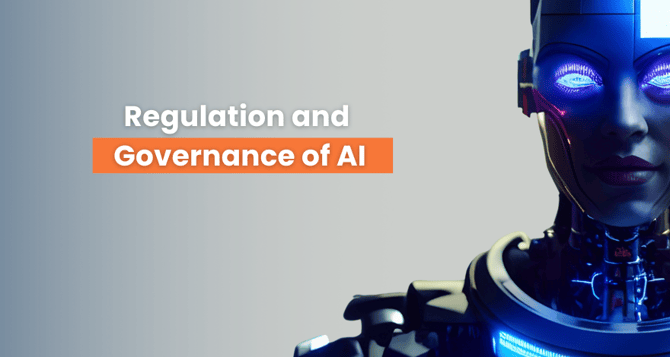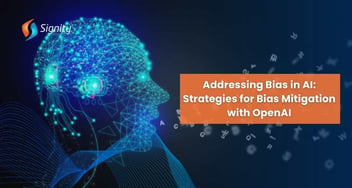Regulation and Governance of AI
From ethical quandaries to legal intricacies, the discussion encapsulates the multifaceted dimensions of AI governance. Stakeholder roles, encompassing policymakers, industry leaders, and the public, are scrutinized for their collective influence on steering AI development toward responsible, transparent, and human-centric outcomes.

In recent years, artificial intelligence (AI) has advanced quickly, which has led to its widespread use in a variety of industries, including healthcare, finance, and other fields. Although AI has revolutionary potential, there are ethical, security, and fairness concerns that need to be considered. Governments, organizations, and the AI community have made AI governance and regulations a top priority to address these problems.
Key Concerns in AI Governance and Regulations:
Ethical Issues:
AI systems may give rise to moral dilemmas, especially about bias, accountability, and transparency. The purpose of regulations is to guarantee that AI is created and applied in a way that is compliant with moral standards.
Data Security and Privacy:
AI frequently uses enormous volumes of data. To protect people's privacy and make sure that data handling conforms with accepted standards and laws, like the GDPR in Europe, regulations are required.
Explainability and Transparency:
It's critical to comprehend how AI systems arrive at decisions. Transparency in AI models and algorithms may be required by regulations, particularly in vital applications like finance or healthcare.
Fairness and Bias Mitigation:
The biases in training data can be reinforced by AI systems. Regulations aim to lessen the negative effects of discrimination in AI applications and to promote fairness.
Current Landscape
National and International Initiatives:
Efforts to create AI governance frameworks have been launched by numerous nations and international organizations. These can be anything from actual rules and standards to policy papers.
Industry Self-Regulation:
To address pressing issues, tech companies, and AI developers have begun implementing ethical standards and self-regulation measures. However, there is disagreement over how effective these measures are.
Key Components of AI Governance and Regulations:
Transparency:
To guarantee that AI systems' decision-making processes are comprehensible and explicable, regulations should mandate transparency in AI systems.
Accountability: It's important to have explicit procedures in place for allocating blame when AI systems malfunction or make bad choices.
Fairness:
Policies need to address concerns about bias, discrimination, and equity in AI algorithms, particularly when it comes to criminal justice, lending, and employment.
Data protection:
Legal frameworks should guarantee that AI systems handle personal data securely and be compliant with current data protection legislation.
Ethical Frameworks:
To guarantee that AI applications adhere to societal values, such as the principles of beneficence and non-maleficence, governance frameworks should include ethical guidelines..png?width=1200&height=250&name=Top%20Industries%20That%20Could%20Benefit%20from%20ChatGPT%20(1).png)
Challenges
Quick Technological Advancements:
As regulations are developed more slowly than AI technology, there is a discrepancy between the two. This leads to a gap in the two domains of regulatory oversight and technological capabilities.
Global Consensus:
Since various nations have distinct goals, ideologies, and legal frameworks, reaching an agreement on AI regulations may be difficult.
Enforcement:
Enforcing AI regulations effectively is a difficult task that calls for resources, knowledge, and the ability to change with the times.
Conclusion
For AI to be as beneficial as possible while minimizing its risks, governance and regulations are crucial. It can be difficult and always changing to strike the correct balance between encouraging innovation and making sure AI development is morally sound, secure, and accountable. In the realm of AI governance, legal service AI is rapidly transforming the legal landscape. It aids in regulatory compliance, streamlining legal document review, and ensuring adherence to AI governance frameworks.
 Governments, industry players, civil society, and international organizations must work together to shape AI governance in a way that benefits society as a whole.
Governments, industry players, civil society, and international organizations must work together to shape AI governance in a way that benefits society as a whole.













